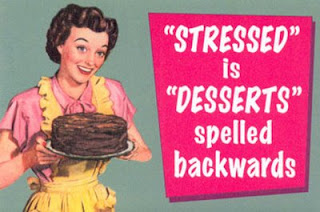Almost November... must be "Freak Out About MFA Applications Time"!
But don't worry, we've addressed many of the most frequently asked questions below. And of course Sally Jane, Nancy, and many others will answer any new questions in the latest mailbag. Hang in there!
-- Tom Kealey
1. If you can afford it, apply to between 8 and 12 programs. The selection process is unpredictable. Keep your options open.
2. When considering programs (and this is my advice, and not often the same advice of many other people): Consider location, funding, and teaching experience, in that order. Make a list of places where you'd like to live and where you could stand to live. Think about your financial situation (and don't drop 35K a year on a writing program), and select programs that meet your funding needs. Consider whether you'd like teaching experience or not. Using these three items, you can get your list down from over 100 to about 20. Then, factor in program reputation and professors and anything else you deem important.
3. Keep in mind that some programs offer 5 slots a year (i.e. accept 5 students), while others will offer 30 or more. Try to choose a good mix between small and large programs so that you'll have options.
4. You'll need some combination of writing samples, personal statement, letters of recommendation, GRE scores, undergraduate transcripts, and maybe a couple other items. Your writing sample will count for about 90% of your acceptance or rejection, so be sure to make it count.
5. The MFA degree is an artistic degree and not primarily a professional degree. Don't expect that the degree will get you a teaching job and a book deal. Expect that you'll spend two to three years focusing closely on your craft within a writing community. It's an MFA degree, similar to MFA Art degrees.
6. Ask for letters of recommendation from people you can count on. (i.e. People who will actually write the letters and who will say nice things about you). Getting someone dependable is more important than getting someone famous. Generally speaking, you'd like to have two letters from teachers and one from a former boss, or editor, or fellow writer. But go with what you've got.
7. For your personal statements: Come across as formal and friendly. Come across as a serious writer and a dependable person. Discuss your life experience, your goals, and the reason you want to take this time. The letter should be no more than 1.5 pages.
Bonus: Once you've been accepted at (hopefully more than one) programs, get in touch with current students and ask them about the atmosphere there. You'll learn a lot by getting the ground's eye view.
7. For your personal statements: Come across as formal and friendly. Come across as a serious writer and a dependable person. Discuss your life experience, your goals, and the reason you want to take this time. The letter should be no more than 1.5 pages.
Bonus: Once you've been accepted at (hopefully more than one) programs, get in touch with current students and ask them about the atmosphere there. You'll learn a lot by getting the ground's eye view.

